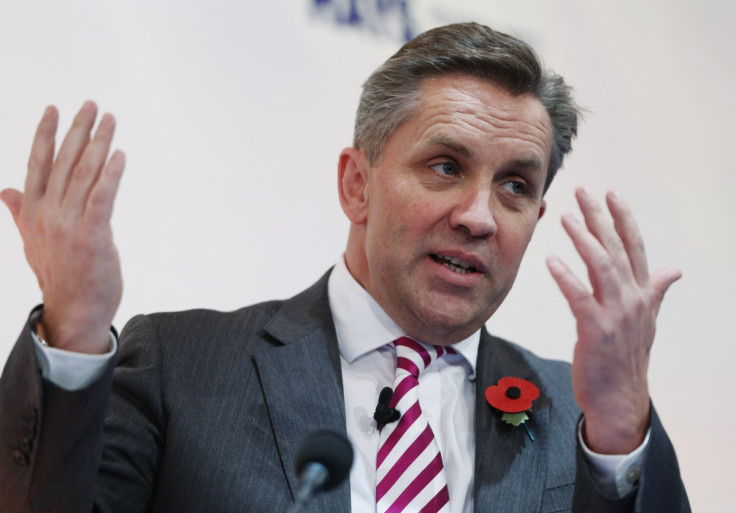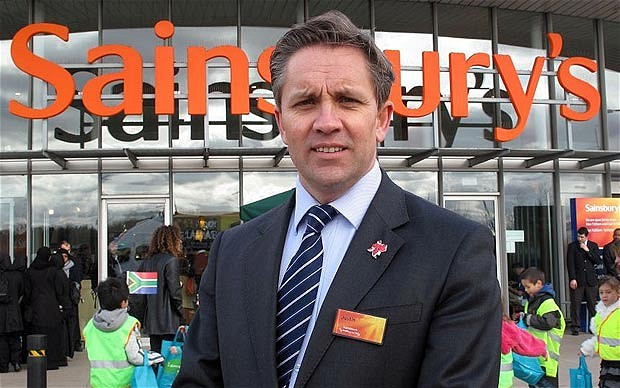Sainsbury's Justin King Resignation: How to Smooth Out Executive Transition Periods

The recent announcement that Justin King, CEO of Sainsbury's, is to step down from his role after the company's AGM in July was accompanied by plaudits for the man hailed as a "truly exceptional leader" by Sainsbury's Chairman, David Tyler. King has presided over a transformational decade for the company, with profits almost trebling (from £254m in 2004/5 to £756m in 2012/13) and the number of Sainsbury's stores doubling during his tenure.
CEO designate, Mike Coupe, knows Sainsbury's well, having joined the company in 2004 and acted as Group Commercial Director since July 2010. Nonetheless, the well-regarded and articulate King will be a tough act to follow.
In preparation for times like this, what should companies do to ensure a smooth transition and minimise impact on the business?
The UK Corporate Governance Code makes it clear that succession planning is one of the key responsibilities of the Board, in particular the non-executive directors.
Potential internal candidates for future leadership roles should be identified well in advance and not only in response to an impending departure. In choosing likely candidates, it is important to analyse critically and objectively the skills of the relevant individuals and not simply select the favourites of the existing leadership team.
An excellent second-in-command may not - yet -necessarily have the skills and vision required to take on a more senior leadership role. This is where proper training and mentoring comes in.
In order to prepare the next generation of leaders, those with promise need to be stretched. It is not enough for them to achieve their personal goals; those with true potential will demonstrate an ability to motivate the people around them to achieve the organisation's wider aims.
Potential leaders must therefore be given the opportunity to shine. If possible, they should be allowed to participate in goal-setting activities and to take responsibility for achieving them. Watching how candidates solve problems and deal with set-backs is informative: do they blame others or take ownership of the outcome, whether success or failure, as a leader should.
Equally, potential leaders should be supported in closing the inevitable gap between where they are and where they will need to be if the top job comes up.
Appropriate training and mentoring should be made available and a clear plan developed to give the candidate the opportunity to learn the skills required to progress. It should be made clear to the candidate that the organisation wants them to succeed, whilst also acknowledging that not every potential leader will make the grade.
The arguments for an internal appointment can be strong, particularly when a company is perceived as having a successful culture and business model, but the nomination committee should also consider external candidates and the benefits a fresh perspective may bring.

Carrying out an external search can help the Board to better define the qualities which will be most valuable in the next generation of leadership, even if the successful candidate ultimately comes from within. Indeed, Sainsbury's Chairman was careful to point out that they had gone through a thorough review of external candidates before deciding on Coupe.
This not only demonstrated that the Board had discharged properly its duties to ensure the best balance of skills and experience for this crucial role, but added credibility to Coupe's appointment: he really is the best man for the job, not just the anointed one.
No one individual is likely to be the first choice of all those with a vested interest, so it is essential that the Board communicates full support for the successful candidate.
Both internal and external messaging is important at a time of transition, particularly where a long-standing or particularly well-liked executive is being replaced.
For listed companies, the market may be jittery and look for reassurance; internally, employees will want to understand the impact of the new appointment. Ideally, significant changes will be minimal at first. As tempting as it is for a new chief executive to seek to stamp his or her authority on the situation quickly, it is often better to allow the dust to settle before implementing a new regime.
The management of succession is a key measure of the effectiveness of any Board. Good succession planning will ensure that no one person becomes indispensable and minimise the impact of the departure of even the most popular leader.
Perhaps King's greatest achievement is choosing to leave when still seen as at the top of his game.
Coupe may have big shoes to fill, but his legacy will depend on many factors – some outside his control – and, like any new CEO, all he can do is his best.
Melanie Wadsworthis a corporate partner in the London office of Faegre Baker Daniels LLP, an international law firm.
© Copyright IBTimes 2025. All rights reserved.





















